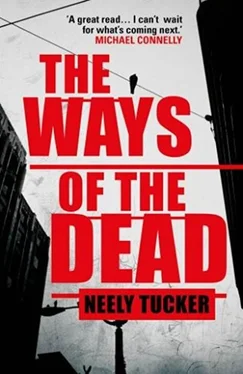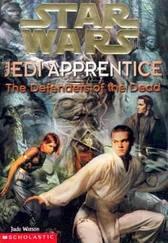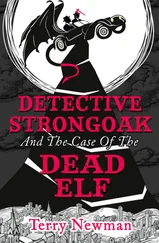He drummed his fingers on the kitchen counter and put three spoons of sugar in the coffee and sipped and looked at his tree. Picking up the cell, he punched in the numbers of MPD lieutenant John Parker, deciding to see what he could get out of him.
John was a decent sort but last year had been put in charge of the city’s demoralized homicide squad, a group beaten down by years of crack wars, union infighting, and then, the coup de grâce, the chief’s sudden orders to decentralize. The chief had the brilliant idea that he would spread his best detectives out to the city’s seven wards. Supposedly this was getting guys out on the street, closer to the action, closer to the Fat Chuckys of the world, who would turn on bigger players like the Sly Hastingses, which would help them solve more of the sixty-five percent of the cases that were now going unsolved. It was a pathetic closure rate, Sully would grant the chief that-two out of three killers in the city were literally getting away with murder-but blowing up the department, separating your best thinkers and most experienced ballbusters was just depriving yourself of decades of institutional knowledge. And then there was the practicality of it all: John had guys twenty years on the force and suddenly their commute got bumped from twenty minutes to get to headquarters to an hour, each way, to get out to 7-D. It was a morale killer, and John was still swimming upstream in a river of shit.
This morning, his cell rang five times and went to voice mail. Sully cleared his throat, still waking up.
“Hey, John, how you living? I just need to know what time and where the raid is going down on the suspects in the Sarah Reese homicide.” “I just drove by and saw your car out back of 4-D so don’t even fuck with me that you ain’t working this. I’ll call you back every three minutes. You know I love you.”
He hung up and went into the backyard.
The tree, he decided, would look better with flowers around the base. He walked out front to get the paper. Flapping it open, he saw that his story was the centerpiece. The phone rang.
“You’re not half as smart as you think you are,” John said.
“I’d believe that if you hadn’t called me back so fast.”
“You get this from our shop or the feds?”
“I’m a popular young man, John. People like talking to me. It’s flattering. And this is-have I mentioned?-never seeing the light of day. I have not spoken to you.”
“We’re going to talk about this later.”
“Un-hunh.”
“The 1500 of First Street, Southwest. First and P. Three-story apartment complex. Don’t even try to get on First. Stay on P.”
“When?”
“I’d say just before dark. And keep your head on a swivel.”
A couple of Tylenols later, Sully was dressed and taking the bike out on Constitution Avenue, past the museums and the Mall, opening up the throttle as he crossed the bridge, looking over the dark brown waters of the Potomac until he was in Virginia, peeling right on the George Washington Parkway. The rain had blown through and now the air felt so clean it seemed somebody ought to be charging for it. Far below, the yachts rested out on the Potomac, bright white dots in the sun. The doctor, the guy at Landstuhl, the one who had told him to focus his mind on something good and hold it there? He had said it was a bit of mental discipline to pull himself out of everything that had happened in the war, the things that he had lost.
***
By the time David Reese emerged from the front door of his house at one thirty-five, the press herd on the street out front was fifty or sixty strong, nervous, mooing in their discontent. Reese was in a black suit, white shirt, and black tie, walking briskly down the sidewalk, turning and walking up the driveway toward the street. The house was an impressive but not overbearing two-story colonial on a street filled with them, the kind of well-to-do-but-not-ostentatious place federal judges seemed genetically programmed to seek out. Manicured hedges, mulch in the flower beds, half a dozen oaks in the front yard, a canopy of green. In the back, Sully guessed, was the pool and the deck, maybe with one of those little rock waterfalls. It took him a few minutes to spot the security cameras, discreetly mounted on the balcony over the front door and next to the light over the driveway. Just once, he thought, watching Reese move up the sidewalk, he’d like to meet a federal judge who lived in a row house, drove a Civic, and vacationed at Ocean City because that’s all he could afford.
Now, with Reese in plain view, the press crew bolted into action, cameramen trying to pull him into focus while he was walking-a few extra seconds of video would go a long way for background fill-with Secret Service officers or U.S. Marshals flanking him as he approached the bank of microphones. He stopped there and they kept walking toward the mob of reporters.
The taller one with dark hair said, almost in a whisper: “No questions. No questions at all. There will be no questions. Judge Reese will make a statement and that will be the end.” Then he and his partner moved back, flanking Reese.
The judge stood at the microphones and looked from left to right expectantly. He was a tall man, perhaps six foot three, and weighed, Sully guessed, about two hundred. His face, usually tanned, was ashen. He seemed to blink in slow motion. Valium? Handful of Ativan? Sully glanced to the house to see whether anyone was looking out a window, but not a curtain stirred.
“On Friday evening, October first, our daughter, Sarah Emily, was killed after her dance class in Washington, D.C.,” Reese began. His voice was full and assured. He leaned down slightly to talk into the microphones. The act of talking seemed to lend his eyes focus, but it was as if the skin were not animated. The man looked like a talking mannequin. Sully, standing at the edge of the scrum of reporters, turned on his recorder and held it out. “We would like to thank all branches of law enforcement for their full support and professional work, which is ongoing. We would like to thank the White House, the President and First Lady, the House and Senate leaders for their remarkable support and personal offers of condolences and sympathy. And we would like to thank the thousands of Americans who, across this country of ours, have reached out to Tori and me to express their empathy, their concern, and their prayers. It is stirring.
“It is equally stirring to us that we have had to look out our windows each day, all day, at a street full of reporters and cameramen and photographers who have expressed no sense of grief but whose job apparently is to document our sorrow by pressing on the boundaries of our privacy. We ask the employers of these workers to release them from these morbid obligations and leave us to our grief. The memorial and funeral service for Sarah will be private. There will be no further announcements or statements from the family at any time on this-this subject .”
He paused, and rocked back slightly on his heels. His hands had been folded in front of him, and now he pulled them behind him, clasping them behind his back. He was beginning to sweat, the beads starting to form high on the forehead. Sully thought he was ready to launch into another phase of the speech. Instead, he simply gave a curt nod.
“Thank you for coming,” he said. “Now, if you would please leave. Thank you.”
He turned and began to walk back down the driveway.
No one said anything for a moment until, as the lights began to turn off, a cameraman said softly, “And the godless, blood-sucking vultures of the American media thank you. ”
There was low murmuring and chortling behind that, and Sully saw Dave Roberts emerge from the herd. “I’d say he loves us,” Dave said, slapping Sully’s shoulder and moving past him with a cackle, headed for the truck. Sully followed. “That was perfect-you got to give the man his props,” Dave said. “Give it an hour and watch. They’ll scatter like crows.”
Читать дальше












